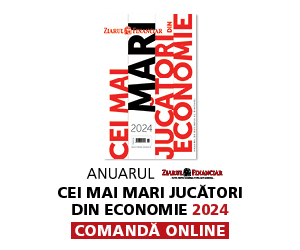Romania rose 20 places in the international microeconomic competitiveness rankings for 2004, to number 56 of 104, according to the Global Competitiveness Report of the World Economic Forum published on Wednesday. This was due to an increase in foreign direct investment, research and development spending and innovation capacity. Development, however, is still hampered by corruption. Estimates by Romanian contributors to the report put the amount paid in bribes for the procurement of public contracts alone at 600 million euros a year.
Romania made progress in terms of macroeconomic competitiveness, moving up from 75th to 63rd place in the rankings this year.
In terms of the global competitiveness index, which was calculated for the first time this year, Romania came in at number 57, putting Romania above Botswana or Algeria, but behind El Salvador, Brazil and Chile.
These are positive developments, yet they need to be treated cautiously, said Liviu Voinea, research director of the Applied Economics Group (GEA), the Romanian partner of the World Economic Forum.
"We are now out of the African countries group, but we still have a long way to go before catching up with the new European Union members and even with the applicants," Voinea said. In 2004, Romania moved "from the Second Division to the First, but still hasn't made the Champions League," GEA's research director explained.
As to Macroeconomics, said Voinea, the leap in competitiveness was the result of improvements in the financial market, increased soundness of the banking system (something in which Romania left Hungary and the Czech Republic behind), easier access to loans, and a tighter budgetary deficit, which in Romania's case was better than for most of the new members.
Problems in the macroeconomic environment include the interest rate spread (on which front Romania fell 20 places from number 74 in 2003 to number 94 in 2004), the cost of agricultural policy, the rate of inflation, and hidden commercial barriers not related to tariffs. The weakest point of all, in the opinion of company managers, is the fiscal burden, which leaves Romania ranking 102nd, better only than Zambia and Georgia.
From a microeconomic perspective, the boost in competitiveness was due to foreign direct investment (which helped Romania climb 10 places to 30th place), research and development spending, an increased number of patents and development of innovative capacity.
ioana.leaua@zf.ro















































